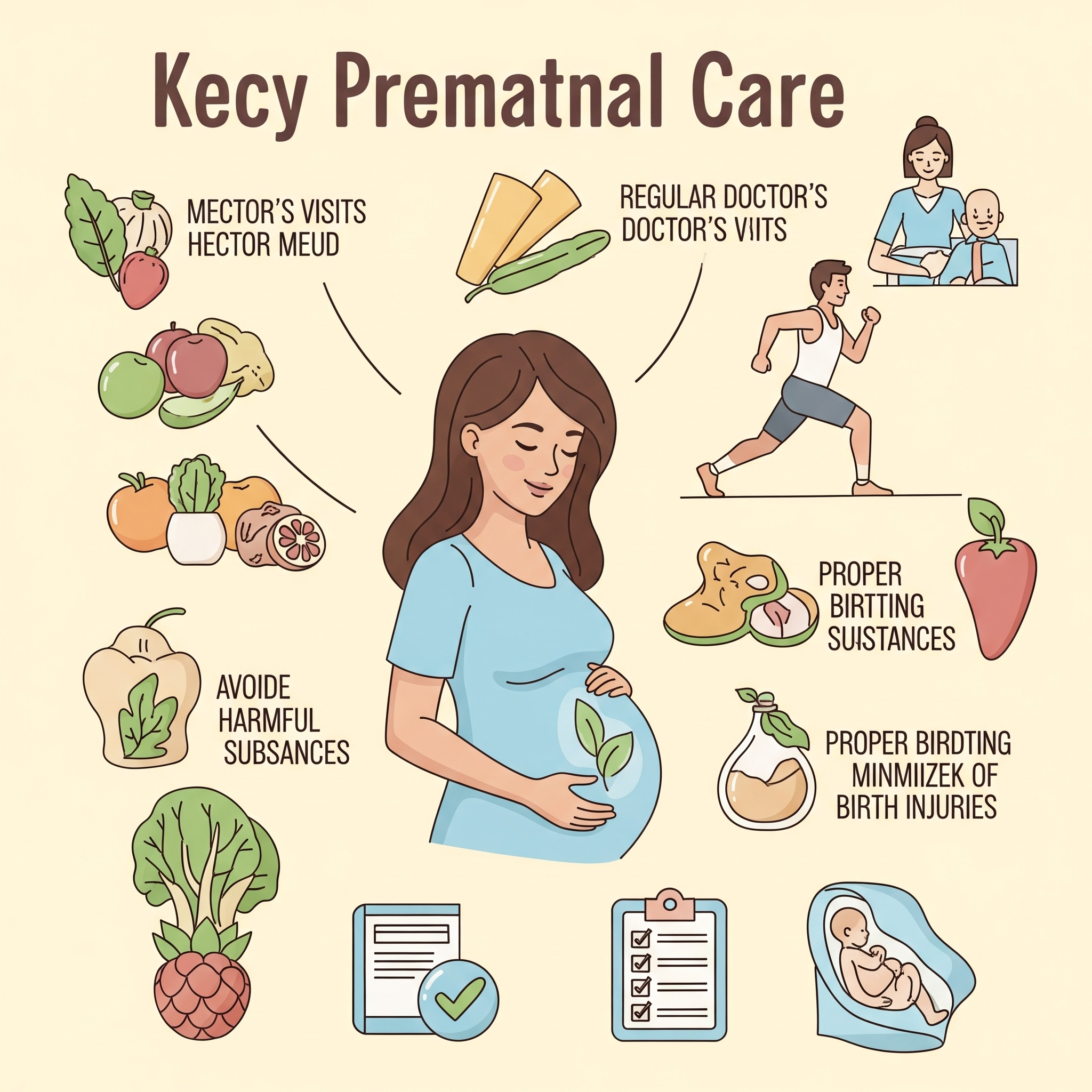The journey of pregnancy is a delicate and transformative period, setting the stage for a child’s health and development. While many discussions about birth injuries focus on labor and delivery, the quality of care received during pregnancy is equally vital. Comprehensive Prenatal Care Birth Injury Prevention strategies are paramount, playing a proactive role in identifying and mitigating risks that could otherwise lead to devastating harm. Understanding how diligent prenatal care contributes to a safer outcome is crucial for expectant parents.
How Prenatal Care Birth Injury Prevention Relies on Early Intervention
Prenatal Care Birth Injury Prevention starts with regular medical check-ups and monitoring throughout pregnancy. This consistent oversight allows healthcare providers to identify potential complications early, manage pre-existing conditions, and make informed decisions that safeguard both maternal and fetal health. When this proactive approach falls short due to medical negligence, it can unfortunately contribute to birth injuries.
Key Contributions of Prenatal Care Birth Injury Prevention:
- Early Identification of Risks:
- Maternal Health Conditions: Detecting and managing conditions like gestational diabetes, preeclampsia, high blood pressure, or infections (e.g., Group B Strep) is critical. Uncontrolled maternal conditions can lead to complications during delivery, increasing the risk of injuries like Brain Injury at Birth.
- Fetal Development Issues: Monitoring fetal growth, heart rate, and position through ultrasounds and other tests can identify issues that might necessitate specialized care or a planned C-section to avoid trauma.
- Proper Management of Complications:
- Infection Control: Timely diagnosis and treatment of infections can prevent them from passing to the baby and causing severe harm, which aligns with birth injury prevention strategies.
- Rh Incompatibility: Identifying and managing Rh incompatibility between mother and baby prevents severe anemia and neurological damage in the infant.
- Placental Abnormalities: Diagnosing conditions like placenta previa or placental abruption allows for appropriate planning and management of delivery, preventing severe complications.
- Informed Decision-Making:
- Effective Doctor-Patient Communication Birth Injuries can help avoid ensures parents are fully informed about their options and risks, allowing for Informed Consent Birth Injuries entail. This collaborative approach leads to better preparation for delivery.
When a Lapse in Prenatal Care Birth Injury Prevention Becomes Negligence
While not all complications can be prevented, a failure to adhere to the standard of care in prenatal management can constitute medical negligence, forming the basis for a birth injury claim. Examples of negligence in Prenatal Care Birth Injury Prevention include:
- Failure to Diagnose: Missing a diagnosis of a serious maternal infection, gestational diabetes, or preeclampsia.
- Improper Monitoring: Not adequately monitoring fetal growth or distress signs during prenatal visits.
- Failure to Advise: Not properly advising parents of risks or recommending necessary tests or interventions.
- Delayed Treatment: Unreasonable delays in treating identified complications that could have been addressed earlier.
Such oversights can set the stage for a difficult delivery and severe birth injuries. This is where Medical Records Birth Injury Claim documentation becomes vital, providing evidence of the prenatal care received.
Seeking Justice When Prenatal Care Falls Short
If a lapse in Prenatal Care Birth Injury Prevention led to your child’s injury, pursuing a legal claim can provide the necessary birth injury compensation for their lifelong needs. An experienced birth injury lawyer will investigate by examining your prenatal records and consulting with Expert Witnesses Birth Injury Lawsuits require to determine if the standard of care was breached and how it caused your child’s harm.
Prioritizing comprehensive Prenatal Care Birth Injury Prevention empowers families to take a proactive role in safeguarding their child’s health from conception through delivery.
If you want to call us and book a free call to discuss Prenatal Care Birth Injury Prevention and your legal options, contact here: Contact Trusted Birth Injury Lawyers | CPFamilyHelp
Frequently Asked Questions (FAQ) about Prenatal Care Birth Injury Prevention
How often should I have prenatal care to ensure Birth Injury Prevention?
The frequency of Prenatal Care Birth Injury Prevention visits depends on your health and pregnancy stage. Typically, it’s monthly until week 28, then bi-weekly until week 36, and weekly until birth, but high-risk pregnancies may require more frequent visits.
Can inadequate prenatal care lead to cerebral palsy?
Yes, inadequate Prenatal Care Birth Injury Prevention can contribute to complications like undiagnosed infections or uncontrolled maternal conditions that lead to oxygen deprivation or other issues causing cerebral palsy.
What records from prenatal care are important for a birth injury lawsuit?
All prenatal records, including notes from doctor’s visits, lab test results, ultrasound reports, and any risk assessments, are crucial Medical Records Birth Injury Claim elements for a lawsuit related to prenatal negligence
Does Doctor-Patient Communication Birth Injuries help prevent during prenatal visits?
Absolutely. Open and honest Doctor-Patient Communication Birth Injuries can often prevent is vital during prenatal care to ensure you understand your health, your baby’s development, and any recommended interventions.
Can genetic testing during prenatal care affect a birth injury claim?
Genetic testing typically relates to Birth Injury vs Birth Defect distinctions. While it identifies birth defects (which are not usually birth injuries), a failure to correctly interpret or communicate results could lead to Wrongful Birth Wrongful Life Claims.





